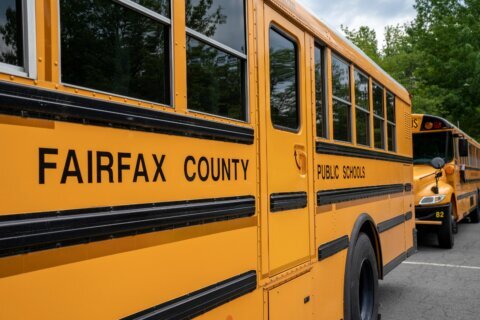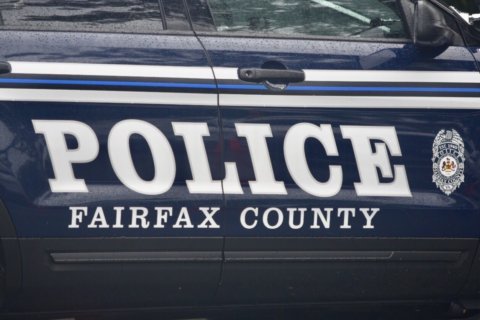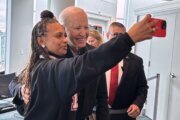Students in Fairfax County, Virginia, may have fewer opportunities to use their cellphones during the school day starting next year.
Under a proposed revision to the “Student Rights and Responsibilities” handbook, cellphone use for most students would be prohibited during all classes as well as visits to the bathrooms and locker rooms.
The school board annually votes on changes to the county’s rights and responsibilities document. A vote on the handbook for next year is scheduled for Thursday night. School board officials said during a work session Tuesday that they recommend the board approve the proposed changes.
The proposed changes come as some educators say students have had difficulty focusing in class after many months of virtual learning. Proponents of the change say students are more focused on class material and discussions when they are not using their phones.
But some, like board chairwoman Stella Pekarsky, say it will be increasingly difficult to expect students to dial back their cellphone usage after many became dependent on technology during virtual learning.
The county’s manual for this school year said that with teacher approval, students can use personal devices “to access the Internet and collaborate with other students during the school day.”
“Maybe not now, maybe not tomorrow, I just don’t think ultimately this is going to work,” Pekarsky said Tuesday. “I hope I’m wrong, because I do think cellphones are an issue, and I do think kids, all of us, are more focused without them. I just worry, how much time are teachers going to spend policing these?”
Under the proposed changes, students in kindergarten through sixth grade would be required to have phones silenced and in backpacks during the school day. Things like smart watches can be worn, but phone features would need to be turned off when phones are not allowed to be used. Phones and tablets also cannot be used in bathrooms or locker rooms.
For seventh and eighth-graders, the same would apply, but phones can be stored in a locker, backpack or pencil bag during the day.
And for high school students, phones, phone accessories and smart watches aren’t allowed during instructional periods.
In all cases, students would not be allowed to use phones in bathrooms or locker rooms except in case of medical necessity or an emergency. Teachers, according to the proposed changes, can allow cellphones to be used in class when they are “the most appropriate tool,” but the handbook says county devices should “meet most needs.”
Parents of students who would require access to personal devices as an accommodation can make requests through the proper multi-disciplinary team, the county wrote.
School board member Karl Frisch said Tuesday that he’s “heard from several educators who no longer allow students to take their phones with them to the restroom, and suddenly trips to the restroom have plummeted.”
Violating the proposed policy changes would constitute a level 1 or 2 offense. Actions tied to those consequences vary and could include confiscation of the phone, detention or a behavior contract, among other things.
The school system surveyed about 3,000 people and found that 79% of parents and 93% of employees surveyed agree or strongly agree to the proposed cellphone use policy changes. However, 37% of the 61 students surveyed favor the proposed changes.
School board member Elaine Tholen said at Herndon High School, which banned cellphone use in April, assistant principals were “seeing less discipline, issues around cellphone use, because they had a school-wide policy that was in effect.”
“The students said, ‘Well, we didn’t really want it in the beginning, but we’re happy now, because we are seeing much more robust discussions in all of our classrooms,'” Tholen said.
School board member Megan McLaughlin, though, said the proposed changes are “too extreme” and “not based in the 21st century.”








